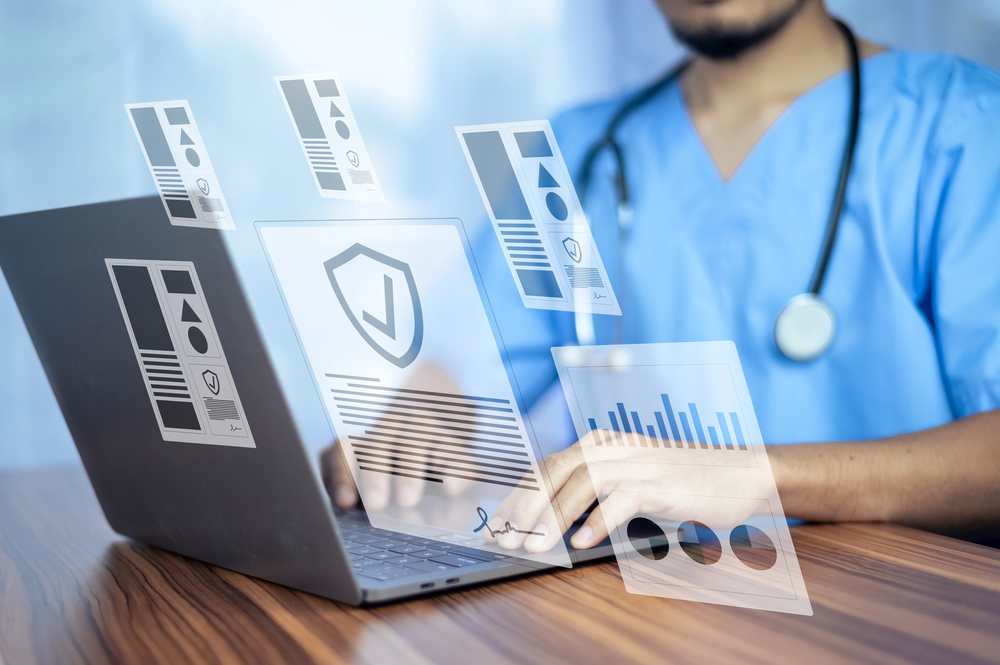
People search sites put healthcare workers' data at risk
A new study reveals the extent to which medical professionals’ personal information is publicly available online, leaving them vulnerable to stalking and other forms of threats.
The report from data privacy and personal data removal service Incogni looks at 768 medical department heads from major US hospitals to see what personal information is publicly accessible and shows some concerning results.

How AI is reshaping the future of healthcare [Q&A]
Artificial intelligence is reshaping healthcare systems across the globe. But to see where it stands today, and where it could be in the coming years, we need to better understand how AI can accelerate patient discharges, improve cancer detection, and support overstretched staff, while also addressing the barriers that have slowed adoption.
AI won’t replace doctors, but it can save healthcare. To find out how we spoke to prominent CIO with decades of healthcare experience, Richard Corbridge. Richard was previously the Chief Information Officer for the Health Service Executive in Ireland and was instrumental in the reform of the Irish healthcare technology system.
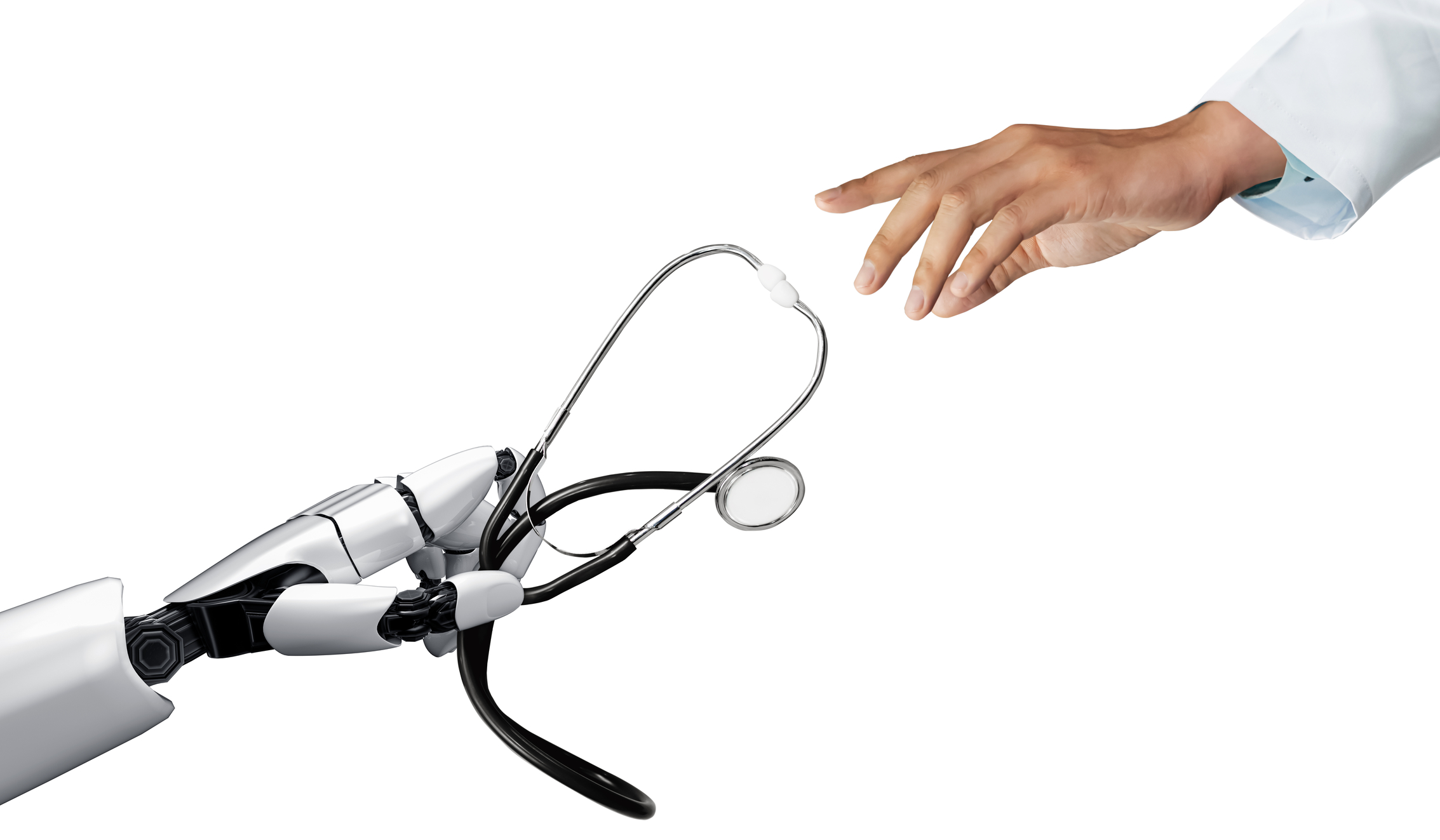
Maximizing AI ROI In healthcare by establishing an automation-first mindset [Q&A]
AI use cases in healthcare continue to expand, and organizations are identifying opportunities to leverage automation technologies to improve existing workflows.
However, after years of implementing new tooling and expanding tech stacks for better efficiency and backend processes, most organizations are left with disparate systems and datasets that make AI initiatives difficult to put into practice. IT teams are now forced to work backwards, embarking on time and resource consuming efforts to determine how automation can work within the parameters of these fragmented processes.
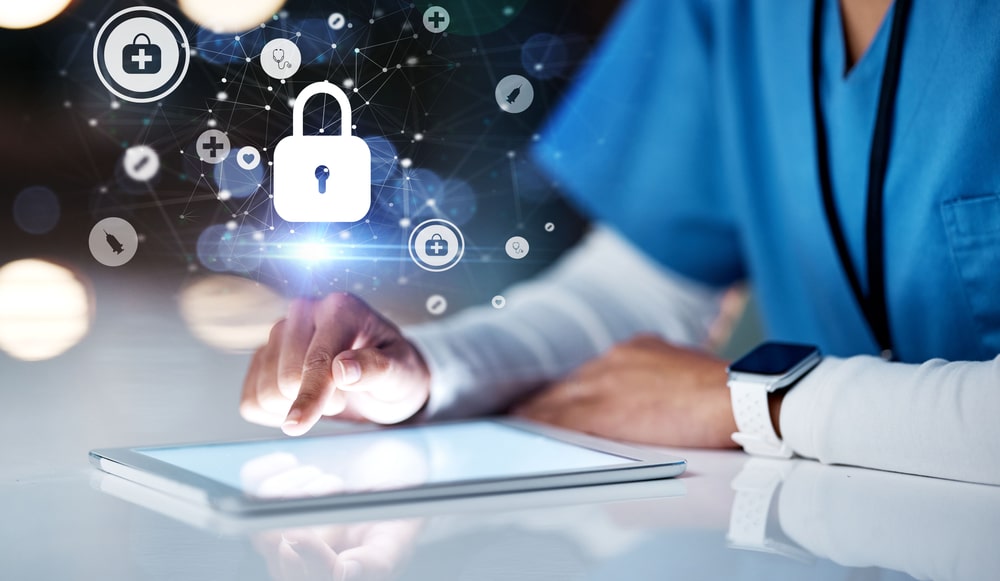
Ransomware attacks on healthcare businesses increase 30 percent
New research from Comparitech, based on data from its worldwide ransomware tracker, finds a 30 percent rise in ransomware attacks on healthcare businesses in the first nine months of 2025.
It recorded 293 ransomware attacks on hospitals, clinics, and other direct care providers -- a similar number to 2024 -- but there were a further 130 attacks on businesses operating within the healthcare sector, such as pharmaceutical/medical manufacturers, medical billing providers, and healthcare tech companies.

Agentic AI and its impact on the healthcare sector [Q&A]
Agentic AI is changing healthcare workflows by moving from passive data analysis to active orchestration of decisions.
But with this come risk. We spoke to Rajan Kohli, CEO of CitiusTech, to discuss how AI is changing healthcare and how organizations can prepare for its impact.

60 percent of healthcare organizations unprotected against a second major data breach
Inconsistent adoption of DMARC standards is leaving 60 percent of US healthcare organizations that have already reported breaches exposed to a second attack.
The study from Red Sift looks at breaches reported to the US Department of Health and Human Services (HHS) during 2023-2024 shows that of 101 companies analyzed, 61 percent remain unprotected, with 33 having no DMARC policy and 28 lacking any data on DMARC.

AI in life sciences and healthcare
The life sciences and healthcare industries have critical challenges to overcome in 2025. Costs in both are on the rise, forcing business leaders to seek out more efficient methods for developing and delivering new products and services. Additionally, consumer expectations are higher than ever, with patients and other clients looking for features that maximize convenience and accessibility.
To help with these challenges, industry leaders should consider the potential of artificial intelligence. AI has been transforming the business world by providing the power to automate, analyze, and increase efficiency in unprecedented ways. For life sciences and healthcare, AI provides the capability to gather and analyze data in a way that drives better outcomes and delivers better consumer experiences.
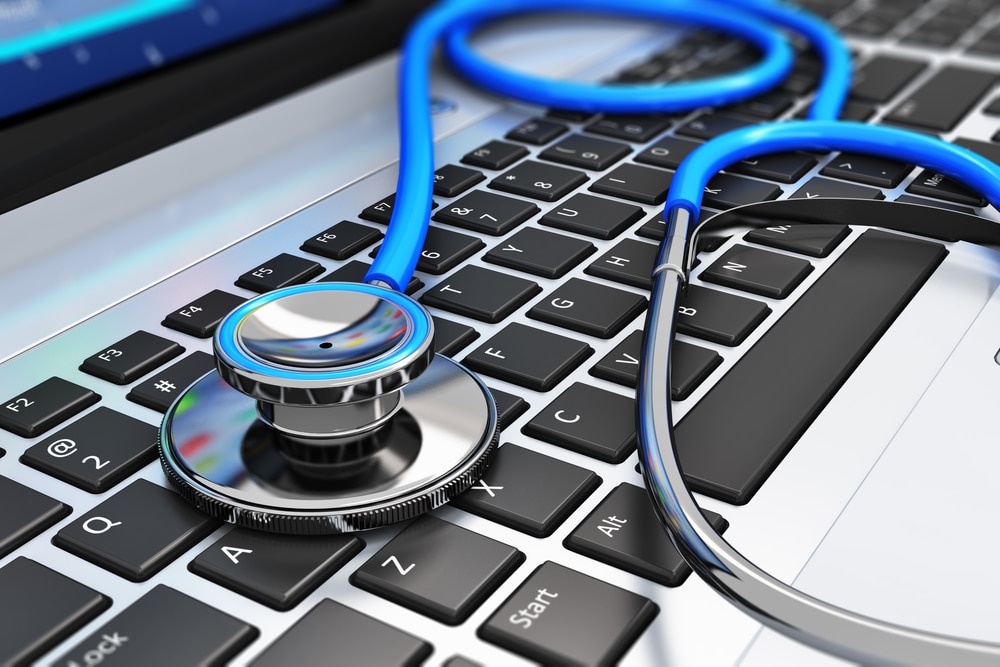
Email attacks target the healthcare sector
A new report from Abnormal Security reveals a rise in targeted email compromise attacks on the healthcare sector.
Vendor email compromise (VEC) attacks on the sector have consistently trended upward, recording a 60 percent increase between August 2023 and August 2024. The sector's reliance on long-term vendor relationships is being exploited through VEC, where cybercriminals impersonate trusted vendors to bypass traditional email security and trick employees.

Defending healthcare systems against ransomware attacks [Q&A]
Ransomware attacks target industries across the board, but they're of particular concern in the healthcare sector where an attack can mean not only data is at risk but lives too.
We spoke with Amitabh Sinha, chief strategy officer and co-founder of Workspot, to discuss the productivity and patient care aspects of these attacks as well as how modern ransomware recovery strategies can help to ensure mission-critical operations can continue, even during an attack.
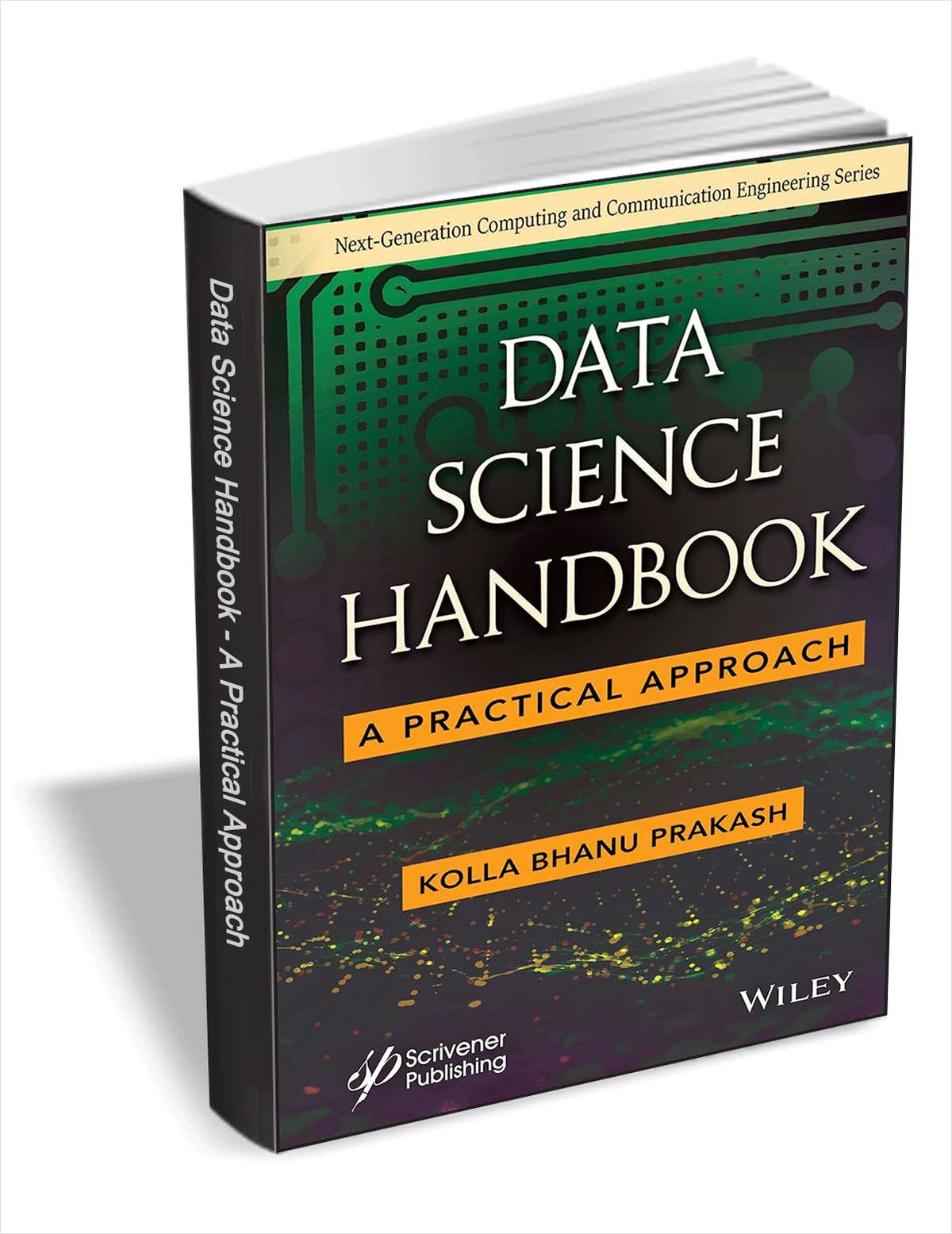
Save $156! Get 'Data Science Handbook: A Practical Approach' for FREE
Data Science Handbook offers a hands-on experience on various algorithms and popular techniques used in real-time in data science to all researchers working in various domains.
Data Science is one of the leading research-driven areas in the modern era. It is having a critical role in healthcare, engineering, education, mechatronics, and medical robotics. Building models and working with data is not value-neutral. We choose the problems with which we work, make assumptions in these models, and decide on metrics and algorithms for the problems. The data scientist identifies the problem which can be solved with data and expert tools of modeling and coding.

Ransomware in the global healthcare industry
The World Health Organization (The WHO) hosted a webinar on the 18 July to discuss the critical importance of cybersecurity in the healthcare sector, highlighting the severity of the situation the industry is currently facing. Healthcare organizations are increasingly relying on digital systems to facilitate their daily workflow, but the prevalence of outdated legacy technology in the sector is rendering it vulnerable to cyber-attacks with severe consequences.
As has been demonstrated with recent high-profile attacks on healthcare organizations, such as the US’ Ascension and Change Healthcare incidents, and the UK’s NHS attack, the healthcare industry must review its priorities, the threats it faces, and its security measures, without delay.

Transforming quality assurance in healthcare using GenAI
The global MedTech software market is projected to reach $598.90Bn by 2024 growing 5.3 percent annually due to increased R&D investments. As the market shifts towards tech-first patient care, MedTech software must meet quality and regulatory standards to ensure effective care and patient safety, making Quality Assurance (QA) critical throughout the Software Development Life Cycle (SDLC). QA ensures reliability, functionality, and adherence to industry standards with MedTech companies dedicating 31 percent of their software budget to QA and testing.
Artificial Intelligence (AI) tools have enhanced healthcare QA efficiency -- GenAI is notably reducing manual testing, improving software usability, and enhancing code quality. AI adoption is expected to make software testing more autonomous, boosting QA productivity by nearly 20 percent, with GenAI tools projected to write 70 percent of software tests by 2028.

New nation-state campaigns target government, banking and healthcare
Researchers at secure browser company Menlo Security have uncovered three new nation-state campaigns employing highly evasive and adaptive threat (HEAT) attack techniques.
In a 90-day period, the campaigns -- LegalQloud, Eqooqp, and Boomer -- compromised at least 40,000 high-value users, including C-suite executives from major banking institutions, financial powerhouses, insurance giants, legal firms, government agencies, and healthcare providers.
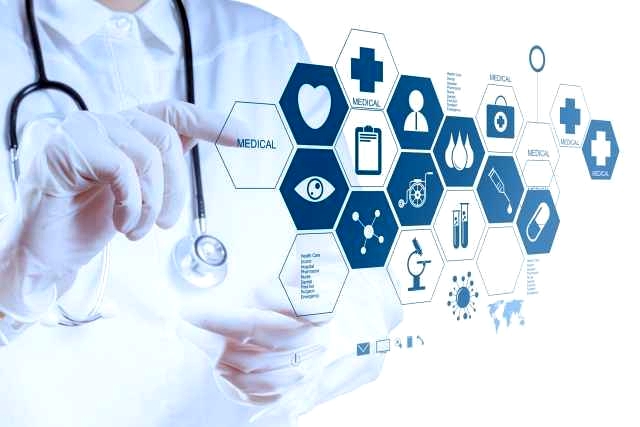
Overcoming real-time data integration challenges to optimize for surgical capacity and better care
In the healthcare industry, surgical capacity management is one of the biggest issues organizations face. Hospitals and surgery centers must be efficient in handling their resources. The margins are too small for waste, and there are too many patients in need of care. Data, particularly real-time data, is an essential asset. But it is only useful if the pieces fit together, solving a puzzle of coordinating schedules, operating room availability, and resource allocation, while ensuring immediate access to patient data for perioperative teams.
Data management demands are significant, complex, and dynamic. Because each patient is unique, anything can happen in an operating room (OR) at any moment. As such, real-time data capture is crucial for surgical workflows. When surgical teams have all the information they need in real time, they can make rapid decisions that not only maximize OR utilization and minimize delays but also enhance overall patient care and safety.

AI-powered attacks, AI potential and tailored cloud -- healthcare tech predictions for 2024
Technologies like AI are set to impact on many industries but perhaps more than most on healthcare. This is also an industry that's uniquely attractive to hackers thanks to the mix of personal and scientific information that it holds.
So how will healthcare benefit -- or suffer -- from technology in 2024? here's what some experts with their fingers on the pulse think.
